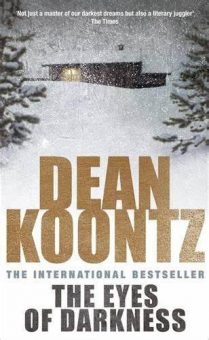would evaporate too, leaving nothing unusual to arouse the initial attending physician’s suspicion.
A uniformed security guard shouldered through the mob of curious onlookers and stooped next to Bruckster. “Oh, damn, it’s Mike Evans. What happened here?”
“I’m no doctor,” Bruckster said, “but it sure looks like a heart attack to me, the way he dropped like a stone, same way my uncle Ned went down last Fourth of July right in the middle of the fireworks display.”
The guard tried to find a pulse but wasn’t able to do so. He began CPR, but then relented. “I think it’s hopeless.”
“How could it be a heart attack, him being so young?” Bruckster wondered. “Jesus, you just never know, do you?”
“You never know,” the guard agreed.
The hotel doctor would call it a heart attack after he had examined the body. So would the coroner. So would the death certificate.
A perfect murder.
Willis Bruckster suppressed a smile.
24
JUDGE HAROLD KENNEBECK BUILT EXQUISITELY detailed ships in bottles. The walls of his den were lined with examples of his hobby. A tiny model of a seventeenth- century Dutch pinnace was perpetually under sail in a small, pale-blue bottle. A large four-masted topsail schooner filled a five-gallon jug. Here was a four-masted barkentine with sails taut in a perpetual wind; and here was a mid-sixteenth-century Swedish kravel. A fifteenth-century Spanish caravel. A British merchantman. A Baltimore clipper. Every ship was created with remarkable care and craftsmanship, and many were in uniquely shaped bottles that made their construction all the more difficult and admirable.
Kennebeck stood before one of the display cases, studying the minutely detailed rigging of a late-eighteenth-century French frigate. As he gazed at the model, he wasn’t transported back in time or lost in fantasies of high-seas adventure; rather, he was mulling over the recent developments in the Evans case. His ships, sealed in their glass worlds, relaxed him; he liked to spend time with them when he had a problem to work out or when he was on edge, for they made him feel serene, and that security allowed his mind to function at peak performance.
The longer he thought about it, the less Kennebeck was able to believe that the Evans woman knew the truth about her son. Surely, if someone from Project Pandora had told her what had happened to that busload of scouts, she wouldn’t have reacted to the news with equanimity. She would have been frightened, terrified . . . and damned angry. She would have gone straight to the police, the newspapers—or both.
Instead, she had gone to Elliot Stryker.
And that was where the paradox jumped up like a jack-in-the-box. On the one hand, she behaved as if she did not know the truth. But on the other hand, she was working through Stryker to have her son’s grave reopened, which seemed to indicate that she knew something.
If Stryker could be believed, the woman’s motivations were innocent enough. According to the attorney, Mrs. Evans felt guilty about not having had the courage to view the boy’s mutilated body prior to the burial. She felt as if she had failed to pay her last respects to the deceased. Her guilt had grown gradually into a serious psychological problem. She was in great distress, and she suffered from horrible dreams that plagued her every night. That was Stryker’s story.
Kennebeck tended to believe Stryker. There was an element of coincidence involved, but not all coincidence was meaningful. That was something one tended to forget when he spent his life in the intelligence game. Christina Evans probably hadn’t entertained a single doubt about the official explanation of the Sierra accident; she probably hadn’t known a damned thing about Pandora when she had requested an exhumation, but her timing couldn’t have been worse.
If the woman actually hadn’t known anything of the cover-up, then the Network could have used her ex-husband and the legal system to delay the reopening of the grave. In the meantime, Network agents could have located a boy’s body in the same state of decay as Danny’s corpse would have been if it had been locked in that coffin for the past year. They would have opened the grave secretly, at night, when the cemetery was closed, switching the remains of the fake Danny for the rocks that were currently in the casket.
Pages: 1 2 3 4 5 6 7 8 9 10 11 12 13 14 15 16 17 18 19 20 21 22 23 24 25 26 27 28 29 30 31 32 33 34 35 36 37 38 39 40 41 42 43 44 45 46 47 48 49 50 51 52 53 54 55 56 57 58 59 60 61 62 63 64 65 66 67 68 69 70 71 72 73 74 75 76 77 78 79 80 81 82 83 84 85 86 87 88 89 90 91 92 93




